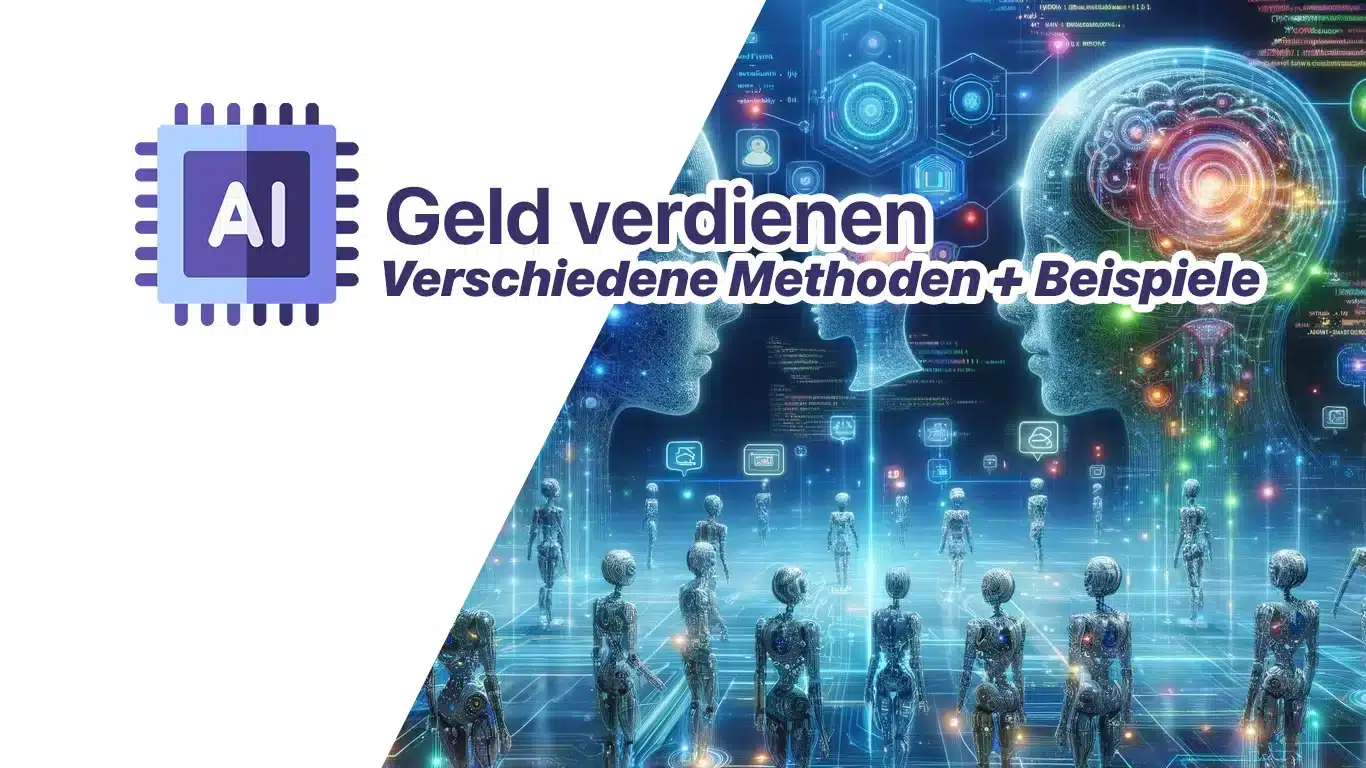In recent years, artificial intelligence (AI) has developed into a key technology that can help companies increase their efficiency and make everyday work easier. It is not just a technical trend, but a transformative force that offers unexpected opportunities and competitive advantages. In this guide, we explain in detail how companies and enterprises can use AI solutions to revolutionize various business processes.
Why AI? The new secret weapon for companies
Before we dive into the specific application areas, let's briefly talk about the reasons why AI is an absolute must for modern business:
- Increase in productivity: Automated processes reduce manual workloads.
- Cost reduction: Efficient processes and error reduction save time and money.
- Customer satisfaction: Fast and precise responses and personalized services increase customer satisfaction.
- Innovation potential: AI offers new insights and opportunities that traditional methods cannot uncover.
Imagine if you could outsource boring tasks like accounting, customer service or similar things – AI can already take over many things.

Write and manage emails
Managing emails can be time-consuming and tedious.
Fully automated AI tools can help here and make everyday work much easier:
Automated e-mail responses
AI can analyze incoming emails and automatically generate suitable responses. This saves time and ensures fast and relevant responses.
Gmail Smart Reply or Microsoft Outlook's Quick Reply are already known for their efficient handling of everyday emails.
Example: A customer writes a complaint or inquiry to your company. An AI-supported solution analyzes the email, interprets the content and responds immediately with an appropriate message that may contain customer-specific information, problem solutions or instructions.
Intelligent prioritization
AI-based email tools help to distinguish important emails from less important ones and improve prioritization. By analyzing your communication behavior, these tools prioritize messages that require your attention the most.
Example: SaneBox and Boomerang analyze your e-mail usage behavior and filter out unimportant messages. They sort emails into priority folders and remind you of emails that have yet to be answered.
E-mail analysis
Tools like Boomerang or SaneBox use AI to analyze email behavior and make recommendations for better email management. For example, which times are best suited for sending emails or how the response rate can be improved.
Example: If your company receives a high volume of emails, the AI can analyze which questions or requests are asked most frequently and provide predefined response templates that significantly reduce your workload.

Create offers
Creating quotations is often a complex and time-consuming process. This is where AI can provide crucial support:
Automated quotation generation
With AI software, offers can be created automatically based on predefined templates and customer data.
Systems like QuoteWerks and PandaDoc offer such functions and reduce the manual effort considerably.
Example: A sales employee has to create a personalized offer for a potential customer. The AI collects all relevant data from CRM systems, selects the appropriate templates and generates a detailed offer that the sales employee only needs to check and send.
Personalization
AI-based systems can tailor offers to the individual needs and interests of customers. This not only increases the relevance of the offers, but also their chances of success. HubSpot Sales for example, offers personalized sales content based on customer behaviour and interest.
Example: AI analyzes a customer's past purchases, browsing behavior and communication and suggests tailored offers that are precisely tailored to the customer's needs.
Analysis and optimization
By analyzing past offers, AI can provide suggestions for improvement for future offers and help to identify patterns that lead to closing. Salesforce offers a comprehensive analysis platform that provides sales staff with valuable insights.
Example: A company wants to increase the chances of success of its offers. The AI analyses completed and lost bids, identifies success factors and offers data-based optimization suggestions for future bids.

Schedule appointments
Scheduling and managing appointments is another area where AI can drastically increase efficiency:
Intelligent scheduling
Tools like x.ai or Clara use AI to automatically find and book suitable appointments for meetings and events. These digital assistants communicate directly with participants and coordinate appointments without you having to intervene.
Example: An AI assistant plans a meeting with several participants, checks the availability in the calendars and suggests optimal time slots. As soon as an appointment is confirmed, it is automatically entered into the calendars of all participants.
Reminders and notifications
AI systems automatically remind you of upcoming appointments and send notifications to everyone involved. Google Calendar and Microsoft Outlook are examples of calendar apps that are controlled by AI and support the user with appointment and task reminders.
Example: One company uses AI-based calendars that continuously monitor all upcoming appointments and important deadlines and send timely reminders to employees.
Conflict resolution
AI can recognize scheduling conflicts at an early stage and offer alternative suggestions. This simplifies the stressful task of coordinating appointments and keeps everyone involved up to date.
Example: A manager has several meetings that overlap. The AI recognizes the conflict, suggests alternative time slots and organizes the changes in the background without the manager having to intervene manually.
Other areas of application
In addition to the areas mentioned, there are many other ways in which AI can be used in day-to-day business:

Data analysis and reporting
AI-supported tools can analyze large amounts of data and automatically generate relevant insights and reports. Power BI from Microsoft and Tableau are leading platforms that offer such functions and help you make data-driven decisions.
Example: A financial analyst uses AI-powered software to analyze huge data sets and create accurate reports that identify trends and patterns and enable future financial forecasts.

Customer service
Chatbots and virtual assistants can answer customer queries around the clock and relieve the support team. Platforms like Zendesk and Intercom offer AI-supported chatbots that can process customer inquiries efficiently and answer recurring questions instantly.
Example: An e-commerce company uses AI chatbots to support customers around the clock with order queries, returns and product information, drastically reducing customer service waiting times.

Personnel management
AI can automate the recruitment process, identify suitable candidates and even conduct job interviews. HireVue and Pymetrics are examples of AI-supported tools that are revolutionizing the recruitment process.
Example: An HR manager uses AI software to filter applications and select the best candidates based on predefined criteria. The AI can even conduct interviews and ask standardized entry-level questions.
Did you know that some large corporations are already using AI to evaluate/sort applications? 😯
These AI tools are available (2024)
- ChatGPT – is also used by Apple
- Midjourney – for pictures
- Google Gemini (formerly Bard) – the Google alternative to ChatGPT
And many more.
Case studies / application examples
Some of the most successful companies have already successfully integrated AI into their business processes. Here are a few real examples:
Company A: AI-supported sales optimization
Company A, a medium-sized manufacturing company, has used AI to optimize the sales process. By analyzing sales data, the AI was able to identify patterns that led to successful deals. Sales employees received personalized tips on which customers they should approach, when and how. The result was an increase in the closing rate of 25 % within one year.
Company B: Efficient personnel recruitment
Company B, an up-and-coming tech startup, was struggling to find and hire qualified talent. By using AI-based recruitment tools, they were able to automate the application process and identify the best candidates faster. The time to fill a position was reduced by 50 %, and the quality of employees hired improved noticeably.
Company C: Improved customer service
An e-commerce giant (Company C) used AI chatbots to improve customer service. These chatbots were able to answer frequently asked questions, track orders and process returns. This increased customer satisfaction and reduced the support team's workload by 40 %.
Closing words
The integration of AI into everyday business life offers numerous advantages, from the automation of routine tasks to the improvement of decision-making through data analysis. Companies that adopt AI at an early stage can increase their efficiency, reduce costs and increase their competitiveness. It is therefore advisable to familiarize yourself with the AI solutions available and check which ones best suit your business needs. The transition to an AI-driven working environment may be challenging at first, but the benefits gained will bring lasting improvements and innovation.
So invest in the future of your companyby integrating artificial intelligence into your business processes. The possibilities are almost endless, and the competitive advantage you gain from this can take your company to the next level of success.
If you want, I can support you in a free initial consultation:





